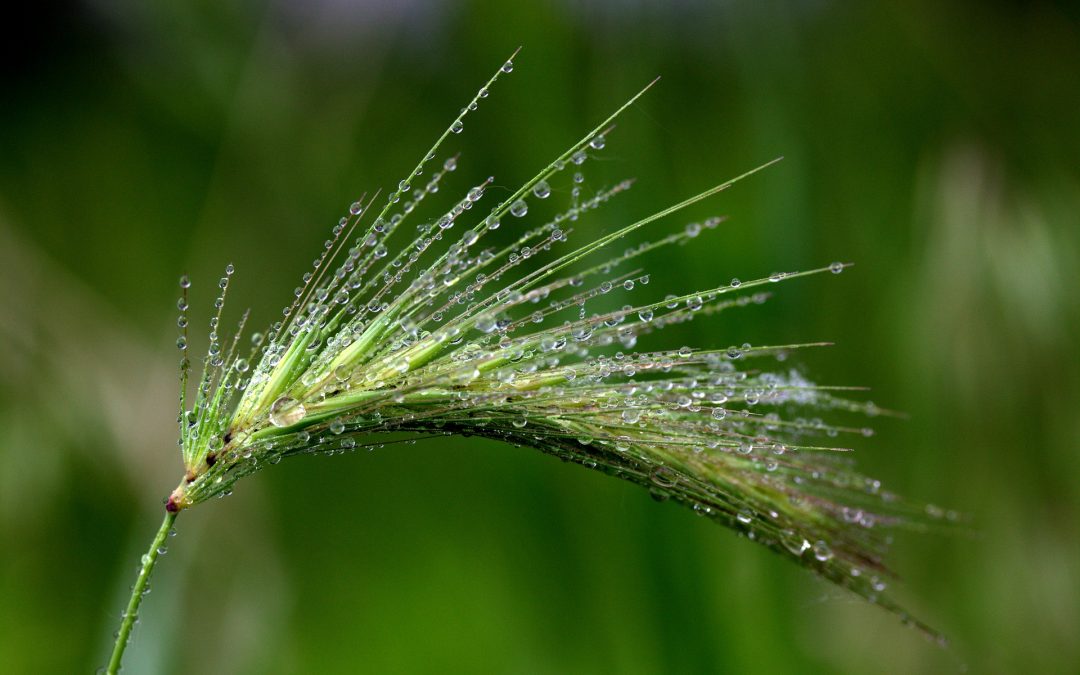Categories: Water
Dew is water in the form of droplets that appears on thin, exposed objects in the morning or evening due to condensation. As the exposed surface cools by radiating its heat, atmospheric moisture condenses at a rate greater than that at which it can evaporate, resulting in the formation of water droplets.
When temperatures are low enough, dew takes the form of ice; this form is called frost.
Because dew is related to the temperature of surfaces, in late summer it forms most easily on surfaces that are not warmed by conducted heat from deep ground, such as grass, leaves, railings, car roofs, and bridges.
Dew should not be confused with guttation, which is the process by which plants release excess water from the tips of their leaves.
Definition of "Dew" by Chat GPT: Dew is the moisture that forms on surfaces overnight when the temperature drops and reaches the dew point, causing water vapor in the air to condense and collect on objects like grass, leaves, or windows.
« Back to Glossary Index 



